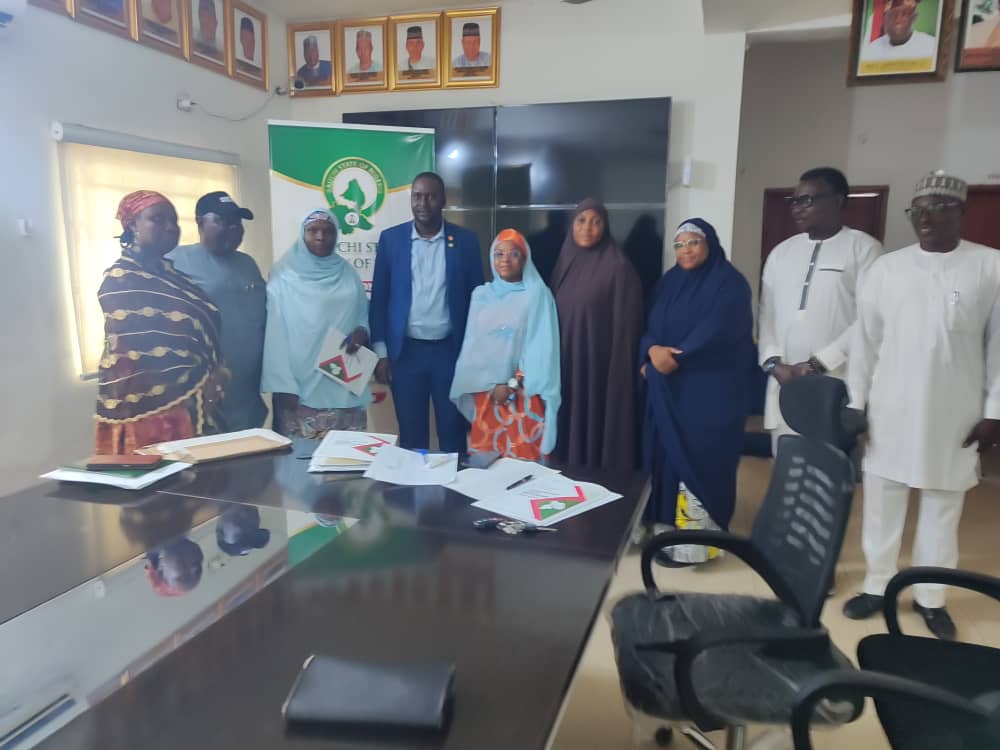Bauchi State Government,AHBN Collaborate to Boost Immunisation Access
The Bauchi State Government has pledged to improve access to immunisation through gender inclusion, community dialogue, and broader stakeholder engagement.
This commitment was made by Hajiya Zuwairah Baba, Head of the Gender Unit at the State Ministry of Health during an advocacy visit by the Africa Health Budget Network (AHBN) and its partners to the Bauchi State Ministry of Health.
The visit was led by Dr Hassan Musa, Bauchi State Focal Person for AHBN, accompanied by members of the Community of Practice (CoP) and the Zero Dose Learning Hub (ZDLH).
Baba assured the delegation that the Ministry’s Gender Unit would collaborate with the group to facilitate access to immunisation, especially in zero-dose communities, as part of efforts to bridge existing healthcare gaps.
She added that relevant state agencies would share findings from the Decentralised Immunisation Monitoring (DIM) report with their principals to evaluate the effectiveness of immunisation service delivery at the grassroots level.
She also noted that results from the 2024 Immunisation Financing Scorecard would be presented to key decision-makers for appropriate action.
“I reaffirm our readiness to support and partner with the CoP and AHBN,” Baba stated.
Earlier, Musa highlighted critical gaps in the state’s immunisation performance, as revealed by the DIM report and the Scorecard.
He said the advocacy visit aimed to strengthen collaboration with gender-focused institutions to bridge immunisation gaps and promote equity.
Musa emphasised the strategic role of the gender units within the Ministry of Health and the State Primary Health Care Development Board in ensuring inclusive access to life-saving vaccines, particularly for underserved populations.
The advocacy visit, led by Dr. Hassan Musa, Bauchi State Focal Person for AHBN, highlighted critical gaps in the state’s immunisation performance.
Musa emphasised the strategic role of gender units in ensuring inclusive access to vaccines and promoting equity. “Effective gender integration in health planning and implementation is essential to achieving equitable immunisation coverage,” he stated .


